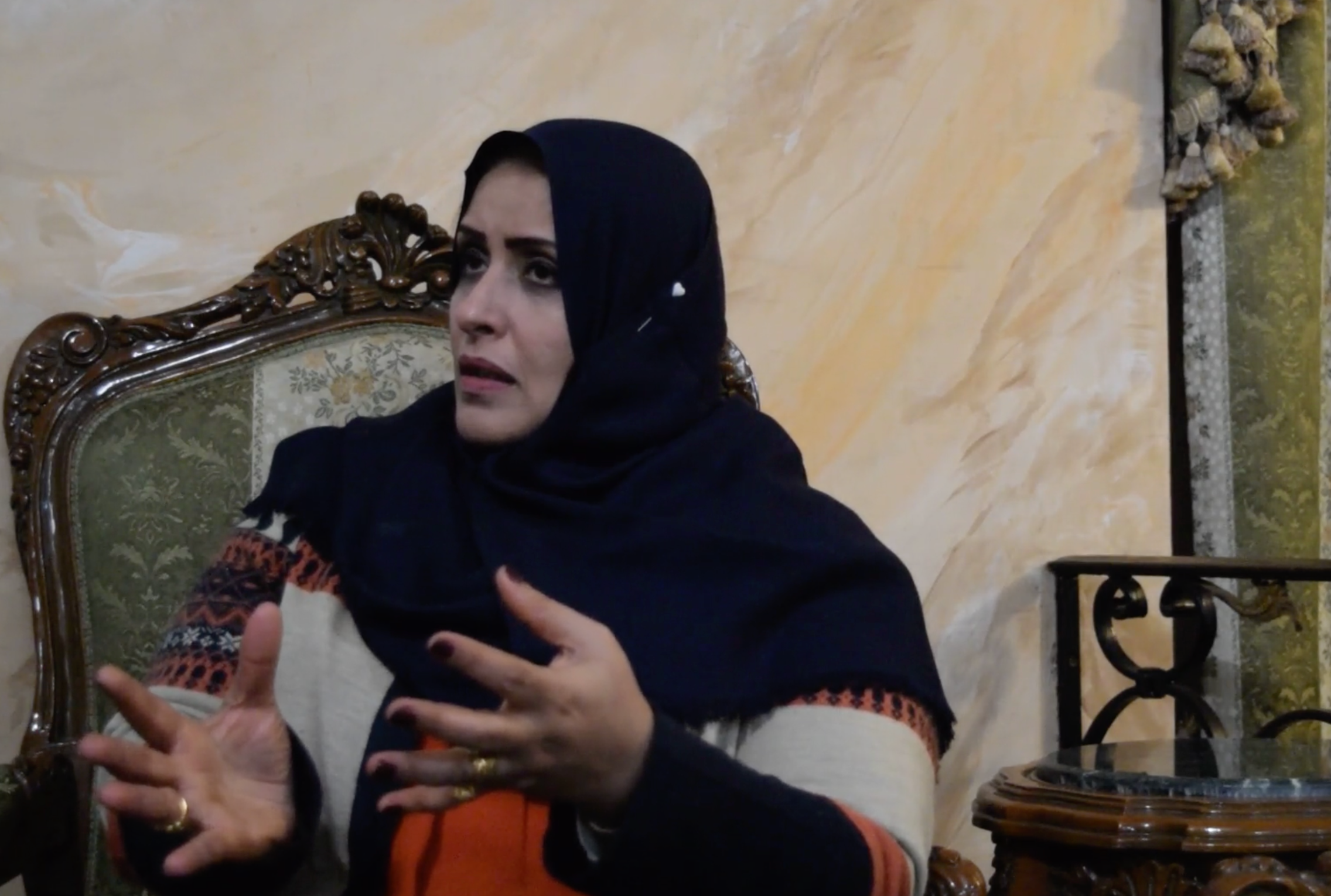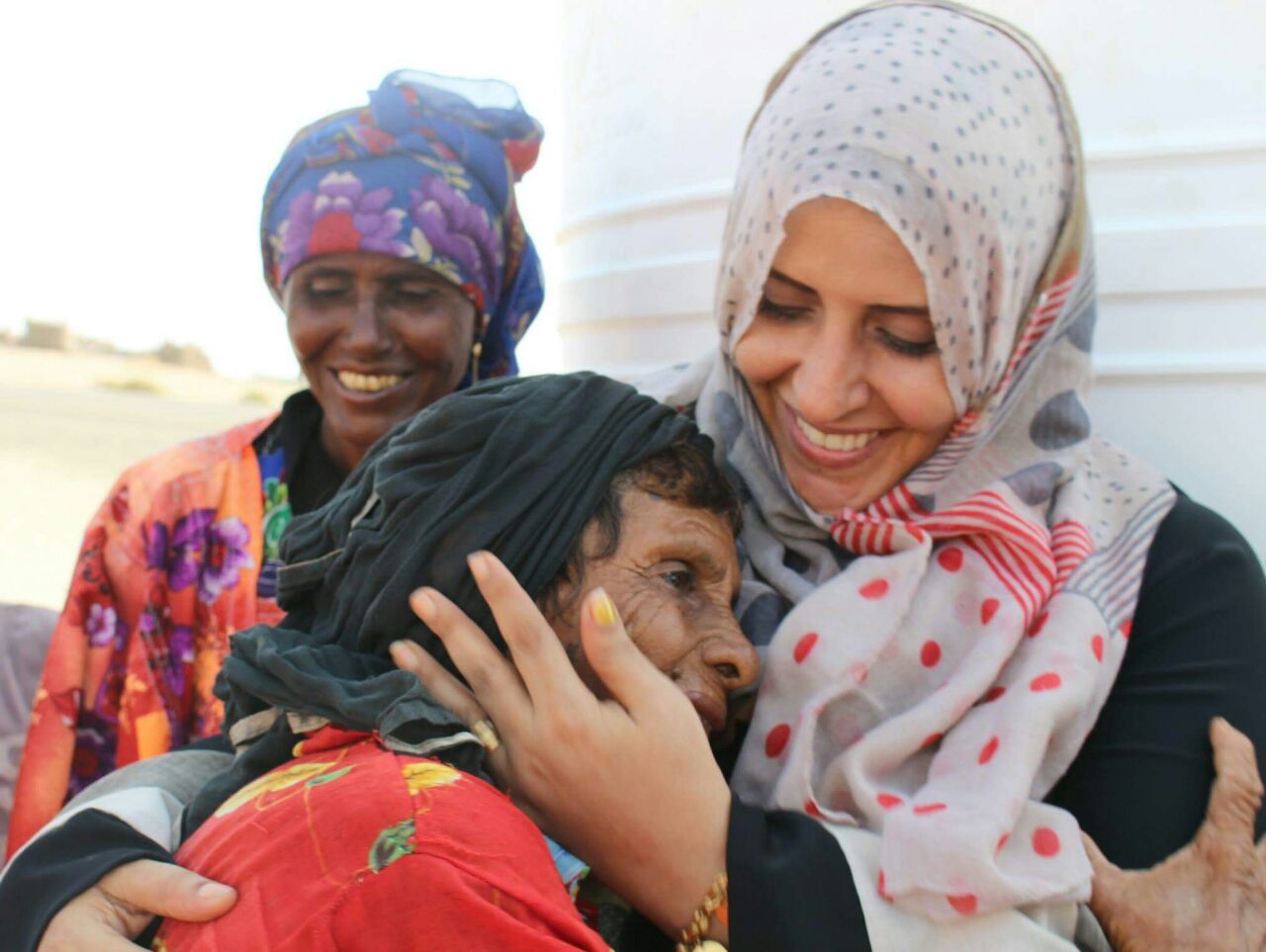Yemen conflict: As truce fails residents in besieged Hodeidah city forced to eat rubbish to survive
Desperate families are left ‘scrabbling’ through landfill to eat and are dying trapped in their homes, a Yemen doctor has said as fighting flares in strategic port city despite peace deal

Residents of Yemeni port city of Hodeidah are so hungry they are eating from rubbish tips, while others are bleeding to death trapped in their bombed-out houses, as fighting has flared in the strategic port town after a UN-brokered truce collapsed.
Describing life caught in the cross-fire, Ashwaq Moharram, a Yemeni doctor from the area, said families were starving to death or dying trying to secure medical help as the conflict continues to cut off parts of the city.
Speaking to The Independent during a brief trip to Egypt to see sick family members, the trained gynaecologist said she has watched injured civilians perish in ambulances trying to navigate treacherous mountain roads to safety.
Despite assurances that a ceasefire deal between the Houthi rebels and the recognised government would allow aid to flow into the port city, she said the truce failed before it even started.
Hodeidah, the main entry point for Yemen’s food and medical supplies, is still under sporadic fire.
“Areas suffering strikes and battles between both parties can’t be reached, even by military forces. A place like Dremy is still being targeted. When people are shot there, ambulances can’t reach them,” she told The Independent.
“In one area along the coast an entire family was injured in a strike and all of them died. Imagine a whole family bleeding to death,” she added.
She said supplies were drying up and food prices were soaring, meaning families were left digging through rubbish tips to find food. For the last four years Ms Moharram has run a mobile clinic providing aid and medical treatment to people in remote villages and towns but many locations are now out of reach.
“Along the coast there are areas I used to visit to bring food. But some I have been unable to get to since April. I don’t know anything about them,” she said.
“We have people scrabbling through garbage tips to eat. They can’t even look for food in their neighbours’ waste, as all of them are poor and have no supplies,” she added.
Her comments come as the UAE, which is part of a Saudi-led coalition fighting in Yemen, said that their forces had struck ten Houthi training camps around Hodeidah and were “prepared to use more calibrated force” despite a peace deal supposedly in place.
Earlier this week the UN admitted that a 7 January deadline for warring factions to withdraw from Yemen’s main port city had passed unheeded.
According to a December deal signed in Sweden, a local administration was supposed to take control and be monitored by a special UN mission. But so far both sides have failed to back down and have instead traded accusations of violations.
Martin Griffiths, the UN’s special envoy for Yemen, said on he was deeply concerned about the renewed hostilities. He urged “speedy redeployments” in accordance with the peace deal.
The UAE, Saudi Arabia and its Gulf allies launched a bombing campaign against the Iran-backed Houthis in March 2015, after the rebels swept control of the country ousting recognised president Abdrabbuh Mansour Hadi.

But four years on the war shows no signs of ending. An estimated 60,000 people have been killed in the fighting which has created the world’s worst humanitarian crisis and pushed the country to the brink of famine.
Anwar Gargash, the UAE’s foreign minister, on Wednesday accused the Houthis of committing over 1,000 violations of the Stockholm agreement.
He warned the coalition would respond with greater force.
“Still no Houthi withdrawal from Hodeidah city ports. Militia blocking aid convoys from leaving Hodeidah and barring ships from entering ports. A real impediment to the peace process,” he wrote.
“Coalition prepared to use more calibrated force to prod Houthi compliance with Stockholm agreement,” he added.
Ms Moharram said desperate residents were fed up with promises of a truce and called the Stockholm agreement “worthless”.
She described pregnant women trying to give birth, although their stomachs are swollen from starvation while new mothers were unable to breastfeed as they are so malnourished.
One eight-year-old child, she said, weighed little more than his own skeleton.
Aid agencies warned on that over the last six months alone more than half a million children from their homes. Save the Children said on that thousands of families were still streaming out of Hodeidah fearing renewed conflict and many were struggling to afford basic items like food, fuel and medicine.
Ms Moharram said that those who had stayed were seeking desperate measures to feed their families. She said she had seen several adverts for the organ trafficking, and people were travelling to countries like Egypt to sell their kidneys.
Some people have even started selling their organs, like kidneys
Added to that there has been an uptick in child marriages. She said parents were so desperate they were marrying off daughters as young as 12 just to secure the dowries so that the family could eat.
“Marriages have become a trade. If someone is in debt due to poverty, hunger, and illness; they repay the debt by offering the 12 or 13 years old daughters. Their husbands are sometimes 70 years old,” she said.
“Some people have even started selling their organs, like kidneys. You can now see adverts. They travel to Jordan, Cairo, or India to undergo the surgeries,” she added.

She said that it was near impossible to find basic goods including baby formula, meaning many have to take a four-hour journey to the capital Sanaa for supplies
“They claim there is a ceasefire, but we see air strikes and shelling every day. Victims fall every single day,” she said.
“The agreement is worthless. War must come to an end. The siege must be ended. People must be paid. Politics can be resolved later,” she added
Join our commenting forum
Join thought-provoking conversations, follow other Independent readers and see their replies
Comments
Bookmark popover
Removed from bookmarks